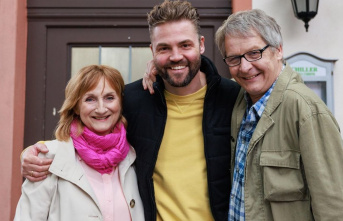The journalist Isoko Mochizuki tries to throw a question to the secretary of the japanese Government, Yoshihide Suga, during the appearance of the politician to the media. The five seconds you have begun your exposure, you receive the first notice of the head of hall: "What is your question?". She tries to finish the sentence, but, a few seconds later, you receive another missile: "Go over, go ending". She stops speaking, but his effort is in vain. Often, Suga dedicated to him with disdain little more than a monosyllable, or in the best of cases, accused Mochizuki to support their questions with false information.
for years, the reporter from the local newspaper Tokyo Shimbun received the contempt of the public for the Government of his country, which has been pressing the Association of journalists of japanese to keep up-to-Mochizuki. But she refuses to stop asking questions, that she has become a heroine of the freedom of the press for a small part of the society. And also in a stinky for a good part of the profession in Japan.
The filmmaker Tatsuya Mori shows all of these altercations in i: Documentary of the Journalist, a documentary that has premiered on the Film Festival of Tokyo. "Japanese society is living too close to the power of organisations and institutions. Many people fall into the trap of believing that this maintains the social harmony. Feel comfortable hiding his personality under the concept of society. Isoko Mochizuki thinks and acts by an individual (not individualistic), and that, being above a woman, is what many do not forgive him," she says to THE Country director during the presentation of his film in the japanese capital.
The house of Mori chased the reporter in the first half of 2019. In that time, she researched the controversial military decisions, doubts about the environmental policy or financial scandals of the conservative Government of Shinzo Abe, the prime minister that more time has occupied the post in the entire history of Japan. "I have seen how you receive insults and harassment for doing their job, but, fortunately, she remains strong and focused," says the director.
Mochizuki, working on the drafting of the Tokyo Shimbun / Film Festival Tokyo
His documentary comes preceded by the unexpected public success in Japan of The Journalist, a political drama inspired partially in Mochizuki and testimonials about corruption and manipulation of journalists who collected in his books.
In those press conferences in which battle Mochizuki, always has priority, the so-called Kisha club, an association of journalists who maintain a good relationship with the cabinet of Abe and whose questions have to pass the filter and even face the veto of the government team. On occasions, members of this group of journalists are the only ones who receive access to conferences or press releases if the subject is too uncomfortable for the public Administration.
Mori date of this weakness of the japanese press in the years of the Second World War. "It was then when the media became press agencies of the State and the Army. In subsequent years, the power of the LPD (Liberal Democratic Party of Japan, currently in the Government) perpetuated this situation," says the filmmaker. Ensures that the current situation in your country reminds him of times to other moments of history, in which "the dictatorship through democracy".
The figure of Isoko Mochizuki serves as the archivist to assert the important role that the media should have in our societies. "Prime minister Abe does not hide the nostalgia he feels for the past, nor the control that it exercises over the press. Many of the reporters in the country have forgotten that one of the main functions of journalism is to monitor the political power. But she has not done," argues the japanese about the story of his documentary, whose end is still to write.
Date Of Update: 02 January 2020, 19:00










